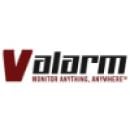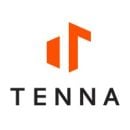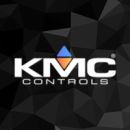The Industrial Internet of Things (IIoT) is a network of connected devices that collect, transmit and analyze data to extract insights for optimizing manufacturing and industrial processes. This analysis leads to more cost-efficient operations, improved maintenance and higher safety standards for workers.
While the more general Internet of Things connects devices within home and office environments, IIoT’s solutions are designed for specific industries. Manufacturing, oil and gas, agriculture, power and transportation are a few sectors that rely on the interconnectedness of IIoT to revamp and maintain their processes.
What Is the Industrial Internet of Things?
The Industrial Internet of Things (IIoT) is a network of connected devices that collect, transmit, share and analyze data to gather insights for optimizing industrial and manufacturing processes. This field’s solutions cater to industries like manufacturing, power, agriculture and transportation.
IIoT may occupy its own niche, but the IoT subset is part of a larger movement labeled Industry 4.0. This phase of the Industrial Revolution prioritizes the interconnectedness of devices by combining areas like machine learning, big data and data analytics. As a result, companies can speed up physical production with digital technology.
How Industrial IoT Works
Industrial IoT consists of sensors, applications, networking equipment and other devices that work together to compile and analyze data. Because they communicate with each other, these devices are able to collectively evaluate data and discover new insights on manufacturing and industrial processes.
Examples of Industrial IoT Solutions
- Improved production efficiency
- In-depth asset monitoring
- Enhanced predictive maintenance
- Higher-quality product standards
- Safer worker conditions
- Faster data collection and response times
The interconnected ecosystem of IIoT makes it easier for teams to monitor individual devices, address minor fixes before they grow into major issues and execute predictive maintenance. Companies can then better maintain industrial equipment and products, reduce costly errors and raise the performance of their customer service.
At the same time, more connections mean more openings for hackers to infiltrate company systems. To counter these vulnerabilities, businesses have also emphasized cybersecurity alongside IIoT to maintain fast yet fortified networks.
Risks and Benefits of Industrial Internet of Things
Industrial IoT is bound to reshape industries for years to come, ushering in a new age full of possibilities and potential pitfalls for organizations to consider.
Older Systems
IIoT networks often connect a range of devices within a business, including systems and devices that may be decades old. These devices often lack the latest software patches and updates, leaving them vulnerable to the most basic cyber attacks.
Sophisticated Cyber Attacks
Even if organizations move all their data into cloud and wireless settings, online threats have evolved to penetrate IIoT environments. Complex malware and techniques for mimicking devices are a couple methods hackers can employ to infiltrate a network and disrupt company processes.
Lack of IIoT Training
Educating workers on IIoT best practices can be a challenge, especially as the technology continues to progress at a rapid pace. Employees may not have the expertise to operate and maintain IIoT-based tools and automations, leading to safety violations, interrupted productivity and potential openings for hackers to exploit.
Faster Data Collection and Analysis
The interconnected nature of IIoT networks allows many devices to store and share information with one another, speeding up data collection procedures and analyses. Teams can also automate many of these steps, maximizing the efficiency of their devices.
Enhanced Asset Monitoring
IIoT gives organizations a bird’s-eye view of their entire network, so teams can keep track of assets and gather production data in real time. Companies can then make quicker adjustments and detect any unusual or malicious activities.
Reduced Operating Costs
Automated processes and online connections cut down on unnecessary manual labor and equipment. In addition, Industrial IoT-powered devices can perform tasks more accurately than humans and conduct preventive maintenance, lowering costs associated with human-related errors and malfunctioning machines.
Security and Privacy Considerations of IIoT
Because it directly connects various devices to one another, the Industrial Internet of Things has led to more concerns over the security of companies’ data and digital resources, including:
- Data breaches
- Malware attacks
- Old systems with no safeguards
- Denial-of-service attacks
- Data interception
- Theft of physical devices
- Infected or malfunctioning IIoT equipment
Data breaches and malware attacks are common fears, especially for businesses that still rely on outdated IT infrastructure. But the design of IIoT networks also leaves the newest devices vulnerable to distributed denial-of-service attacks, which flood a system with requests that lead it to shut down and paralyze workflows.
If hackers are after sensitive information, they can also infiltrate an endpoint device to intercept data while remaining undetected. Some companies still store valuable information on physical devices, so hackers may turn to stealing these devices as an alternative for accessing private data.
Data isn’t the only variable companies need to stay aware of. If a hacker infects IIoT-controlled machinery or even if equipment simply malfunctions, employees may face physical dangers in the workplace.
Applications of Industrial Internet of Things
Businesses may realize the advantages of IIoT outweigh the costs, so a range of industries have adopted the technology to boost their operations.
IIoT in Logistics
Logistics companies embrace IIoT’s ability to connect humans and machines by employing drone technology. Drones receive information from a controller, which human workers can operate to collect data and complete deliveries in a shorter amount of time.
IIoT in Manufacturing
Manufacturers integrate IIoT-powered devices, sensors and machinery into their factories to glean real-time insights from production processes. This method allows them to locate areas for improvement while determining when machines may need upcoming maintenance.
IIoT in Agriculture
Agtech companies use Industrial Internet of Things to create completely automated tractors. These vehicles rely on sensor technology to steer their way through fields, placing seeds with accuracy and compiling geospatial data for farmers to analyze.
IIoT in Automotive
The automotive industry depends on Industrial IoT to fuel the growth of autonomous vehicles. Self-driving cars leverage sensors to keep track of their location while adjusting their route based on real-time traffic data.
IIoT in Construction
Businesses in the construction industry apply IIoT’s interconnected structure to keep a close eye on equipment and track the progress of projects. Monitoring sites also enables teams to follow safety best practices and remain in compliance with OSHA regulations.
IIoT in Transportation
Transportation companies employ IIoT sensors and devices to optimize their routes and maximize the use of their equipment. This allows them to prevent perishable goods from spoiling and ensure no containers, ships and other objects are over- or underused.
IIoT in Power
IIoT makes it possible to split up the power grid into smaller sections that can be managed separately, reducing the complexity of power management. In addition, IIoT devices can automate turning off lighting, AC units and other variables when no one’s in the office.
IIoT in Wearables
Wearable technology and IIoT combine to prioritize safety in construction sites, assembly lines and other environments involving physical labor. Wearables can alert managers to safety hazards and confirm when an employee needs a break by measuring their vitals.
IIoT in Cybersecurity
Industrial Internet of Things’ ability to connect devices across an entire network empowers companies to monitor various endpoints and assets. Teams can then spot vulnerabilities and neutralize cyber attacks in their earliest stages.
IIoT in Robotics
Pairing robotics with Industrial IoT means companies can automate machine processes to increase their productivity and product quality. IIoT can also alert teams when a machine needs repairs before it breaks down, reducing maintenance costs.
Examples of IIoT
For a more in-depth look at how IIoT has aided businesses, consider these examples of companies incorporating IIoT solutions into their technologies and processes.
Volvo Group Performs Predictive Maintenance With IIoT
At its factory in Lyon, France, Volvo Group equips its autonomous guided vehicles with IoT sensors that are connected to the same local network, allowing teams to perform predictive maintenance and avoid unexpected shutdowns.
John Deere Powers Autonomous Tractors With IIoT
Through a combination of software engineering, AI, IIoT and other disciplines, John Deere is building a fleet of autonomous 8R farm tractors. Farmers can track the progress of these tractors with John Deere’s data management platform, which connects all tools and machines on the same network.
Bosch Establishes Smart and Sustainable Factories With IIoT
Bosch laid the foundation for its IIoT solutions in 2016 by outfitting equipment with IoT sensors. In 2020, the company applied AI and Industry 4.0 technologies to develop an energy platform that regulates energy consumption.
DHL Enhances Supply Chains With IIoT
DHL delivered over one billion Covid-19 vaccines across 160 countries, relying on advances in IIoT and network connectivity to do so. By attaching IoT sensors and devices to shipments, DHL was able to constantly monitor the location and condition of its goods.
Airbus Makes Aerospace Production More Efficient With IIoT
To realize the factory of the future, Airbus adopted Bosch’s IIoT-based platform and has improved the efficiency of its manufacturing processes. The company’s Saint Eloi factory can compile data from its entire assembly line to determine opportunities for fine-tuning its operations. Industrial IoT can also help machines apply the proper amount of torque, and Airbus has increased its efficiency by 20 to 30 percent because of this approach.
Future Prospects of Industrial Internet of Things
The global IIoT market is expected to reach $997 billion by 2028, signaling that Industry 4.0 and Industrial Internet of Things are here to stay. Below are a few trends that companies can expect to see as IIoT becomes more intertwined with everyday procedures.
Accelerated Automation With AI and Machine Learning
As IIoT devices and systems compile more information, artificial intelligence technologies will play a crucial role in managing vast amounts of data. Machine learning can automate the task of organizing and analyzing data, bolstering the efficiency of Industrial IoT networks.
Smarter Factories and Manufacturing Facilities
Industrial IoT has excelled in areas like preventive maintenance, quality assurance and machine accuracy. The next step is for IoT devices, such as power over ethernet switches, to streamline manufacturing processes while enduring more extreme temperatures and environments.
Companies Offering IIoT as a Service
Many businesses looking to adopt IIoT solutions may not have the personnel and expertise to install and manage these networks. This opens the door for third parties to provide IIoT services, allowing companies to focus on their operations without worrying about IIoT issues.
Strengthened Cybersecurity Measures
With the U.S. establishing a national cybersecurity strategy, IoT devices may need to undergo more rigorous testing and regulations. This trend is likely to carry over to the Industrial Internet of Things, especially in sectors that handle sensitive data like healthcare and power management.
IIoT and Virtual Reality
Industrial IoT’s connected networks and VR make for an exciting duo. For example, companies may display 3D models on IIoT mobile devices, creating opportunities for virtual trainings and real-life simulations.
26 Industrial Internet of Things (IIoT) Companies
Here are 26 companies using IIoT to design manufacturing processes that are more efficient and cost-effective than ever before.
Founded: 1847
Location: Washington, D.C.
How it uses IIoT: Siemens offers three IIoT solutions: Industrial Edge for integrating IT into production and leveraging machine data; MindSphere, which allows for custom IoT applications; and Mendix, a low-code platform for quickly and efficiently building apps. These areas contribute to Siemens’ goal of creating digital infrastructure to power a data-focused factory.
Founded: 1906
Location: Charlotte, North Carolina
How it uses IIoT: Honeywell’s Connected OEM is an IIoT platform that allows for remote equipment monitoring to “harness opportunities to cut costs, improve reliability, enhance performance, and drive incremental revenue.” By compiling data within a cyber-secure cloud, Honeywell’s platform enables teams to gain a stronger understanding of their operations while shielding their data from unauthorized personnel.
Founded: 1885
Location: Milwaukee, Wisconsin
How it uses IIoT: Johnson Controls provides IIoT services for the building, automotive and power sectors. Its Smart Connected Chillers transmit data that’s analyzed by human experts so buildings run efficiently and maintain comfortable temperatures. Technicians can also keep tabs on the condition of these chillers and get alerts about active or potential issues. Johnson’s smart thermostats monitor air quality and transmit data that lets customers better understand their energy usage — and save money as a result.
Founded: 2015
Location: San Francisco, California
How it uses IIoT: Samsara’s Connected Operations Cloud lets companies manage their operations from a single platform. It includes AI-enabled cameras to improve safety, real-time vehicle diagnostics and the ability to track trailers and other equipment. Businesses can then reduce maintenance costs, automate workflows and stay compliant with industry regulations.
Founded: 1903
Location: Milwaukee, Wisconsin
How it uses IIoT: Rockwell Automation focuses on industrial automation and information, with its FactoryTalk products “supporting an ecosystem of advanced industrial applications, including IoT.” FactoryTalk Edge Gateway, for example, deals in industrial data, providing insights and integrating with IIoT applications. Businesses can explore even more IIoT capabilities with Rockwell’s InnovationSuite, applying machine learning, augmented reality and other technologies to their industrial processes.
Founded: 2014
Location: Somerville, Massachusetts
How it uses IIoT: Tulip’s software platform lets sensors, cameras and other IoT hardware communicate in a plug-and-play environment so users can get a detailed overview of problem areas on the floor that need to be addressed. Additionally, manufacturers can use Tulip’s technology for interactive work instructions, automatic data collection, quality control, audits, machine monitoring and training.
Founded: 2018
Location: Los Angeles, California
How it uses IIoT: First Resonance’s ION factory operating system enables connectivity for manufacturing operations. It can help keep teams updated with real-time information about production, managing inventory, building workflows for complex processes and ensuring security compliance. The operating system has been used in the manufacturing of advanced products, including electric airplanes and autonomous vehicles.
Founded: 2016
Location: Palo Alto, California
How it uses IIoT: Xage Security provides decentralized blockchain and encryption solutions for industrial operations like energy, manufacturing, mining and transportation. The solutions include asset tracking, secure local and remote access, as well as authentication for apps, machines and people. Teams can then develop zero-trust policies for their operations, IT and cloud ecosystems.
Founded: 2011
Location: Fully Remote
How it uses IIoT: Augury uses AI and the IIoT to make machines with mechanical nervous systems that are able to, in effect, maintain their own health. The company’s sensors give malfunction alerts and monitor small changes, sending feedback via Augury’s online management platform to any internet-connected device.
Founded: 2014
Location: San Jose, California
How it uses IIoT: Litmus creates software that connects both legacy and modern industrial devices, so industrial companies can access data in real time. The platform works from the edge to the cloud, allowing businesses to manage the entire lifecycle of IoT deployments. With three global offices, Litmus has worked with leading Fortune 500 companies like Nissan, Intel and Mitsubishi.
Founded: 2013
Location: Austin, Texas
How it uses IIoT: SparkCognition builds and deploys a data-driven analytics platform for clouds, devices and the IIoT via proprietary AI algorithms. Its technology continuously learns from real-time infrastructure data to improve risk mitigation and disaster prevention policies. The company has also strengthened its AI presence in cybersecurity by developing protection against zero-day attacks on network connections.
Founded: 2015
Location: Fully Remote
How it uses IIoT: MachineMetrics offers an industrial IoT platform that helps its customers extract insights from manufacturing machine data with the goal of improving efficiency. The technology is able to use that data to predict and prevent machine failures and optimize workflows. The company’s platform has applications for industries like aerospace and defense, automotive manufacturing and oil and gas.
Founded: 1985
Location: Boston, Massachusetts
How it uses IIoT: PTC offers its customers a portfolio of computer-aid design, product lifecycle management, IoT and augmented reality technologies. PTC’s ThingWorx platform helps companies build and implement IIoT solutions. The company’s services have been used by the automotive, life sciences, oil and gas and aerospace industries.
Founded: 2015
Location: Palo Alto, California
How it uses IIoT: Arundo provides industrial companies with advanced analytics and machine learning applications that allow teams to better understand physical operations, reduce costs, boost revenue and mitigate risk. Built specifically for industrial users, Arundo’s software helps asset-heavy industries access analytics in remote or disconnected environments in which maritime, energy and oil and gas teams often operate.
Founded: 2013
Location: Waltham, Massachusetts
How it uses IIoT: Plataine employs proprietary optimization algorithms to provide intelligent automation services — such as tracking raw materials and production scheduling — that help companies make quality improvements, reduce waste and gain insight into the manufacturing process. Its IIoT-enabled technology integrates with a company’s existing infrastructure for added convenience.
Founded: 2015
Location: Worcester, Massachusetts
How it uses IIoT: Embue’s IIoT smart building technology lets building owners and managers know what’s happening with on-site equipment and the indoor environment. Residents get the benefit of IIoT-enabled devices that include the Embue thermostat, sensor, leak detector and shut-off valve controller, smart wall outlet, smart controller and smart core. The company also makes a temperature probe and an HVAC management module.
Founded: 2006
Location: Austin, Texas
How it uses IIoT: Axzon’s integrated circuits are used in radio frequency identification (RFID) tags and passive wireless sensors. As part of its edge-to-edge processing, the raw data that’s collected is transformed into actionable insights using proprietary algorithms on the company’s versatile IIoT platform. The company has also branched out with hard and flexible sensors that measure temperatures in a range of environments.
Founded: 2004
Location: Chicago, Illinois
How it uses IIoT: Linx is a design, engineering and manufacturing enterprise that makes automation machinery and IIoT equipment for a wide variety of industries. Billing itself as a “one-stop shop,” Linx handles projects from concept to completion. With expertise in both software engineering and electrical engineering, the company is equipped to craft IIoT solutions through an electro-mechanical assembly process.
Founded: 2012
Location: Los Angeles, California
How it uses IIoT: Valarm’s services include remote monitoring, telemetry, sensors and IIoT devices. Its open platform, Tools.Valarm.net, can accommodate an array of different sensors. The company’s devices have been used in many scenarios, including for water level and flood monitoring warning systems in the Chesapeake Bay area and water well management.
Founded: 2015
Location: Edison, New Jersey
How it uses IIoT: Tenna connects equipment to its cloud-based asset management system in part by using IIoT-connected GPS asset trackers. Telematics data collected includes location, speed, fault codes, engine hours, computer engine diagnostics and more — all of it read through a vehicle’s onboard monitor and transmitted through the IIoT via GPS and cell trackers.
Founded: 1969
Location: New Paris, Indiana
How it uses IIoT: KMC Controls connects its customers to commercial-grade building systems, meters, sensors and infrastructure via the IIoT. Its product family includes the IoT and automation platform KMC Commander, which collects data in the cloud so companies can “track, trend, and trigger your systems and devices securely from anywhere.”
Founded: 2012
Location: Cupertino, California
How it uses IIoT: Falkonry makes machine learning software for manufacturing and other industrial operations. Its ML system integrates with a company’s existing data and infrastructure to provide predictive analytics across different processes and assets. The software acts as a data scientist, identifying and predicting behaviors while also providing teams with explanations for those behaviors.
Founded: 2013
Location: Palo Alto, California
How it uses IIoT: Altizon’s IIoT software suite lets companies safely connect and process data to identify and understand operational impacts on business. Altizon’s platform, Datonis, helps enterprises link and manage devices, stream analytics and connect plant floor systems, among many other functions. Businesses can then transition to a completely digitized smart factory that ramps up production while maintaining quality assurance measures.
Founded: 2015
Location: New York, New York
How it uses IIoT: Claroty is a comprehensive cybersecurity platform for detecting and eliminating threats. It protects industrial control networks and can be used by many different industries, including manufacturing, chemical and transportation. In addition to threat detection, Claroty’s products specialize in areas like remote access and SaaS solutions.
Founded: 2013
Location: Seattle, Washington
How it uses IIoT: Seeq’s advanced analytics platform for process manufacturing data offers solutions specifically designed for the IIoT industry. It provides companies with analytics from sensors and wireless networks, augments supply chain visibility and allows them to remotely monitor assets and operations.
Founded: 2017
Location: Santa Clara, California
How it uses IIoT: Hitachi Vantara, a subsidiary of Hitachi, has an IIoT platform called Lumada, which is intended to turn customer data into insights that can be used to support innovation and develop business strategies. The platform’s analytics for Disney Parks have helped to improve efficiency at the company’s popular theme parks.
Frequently Asked Questions
What is the Industrial Internet of Things?
The Industrial Internet of Things (IIoT) is a network of devices that collect, share and analyze data to improve industrial and manufacturing processes. This allows companies to improve safety and cost efficiency.
What is the difference between IoT and IIoT?
IoT involves connecting devices to a network under any circumstances. However, IIoT takes this same principle and applies it specifically to industrial and manufacturing settings. As a result, IIoT is a subset of IoT.
What is an example of Industrial IoT?
An example of Industrial IoT is attaching IoT sensors to factory equipment to monitor its status and enable teams to perform predictive maintenance. Volvo Group has used this approach to help its autonomous guided vehicles run smoothly without disrupting production.


























